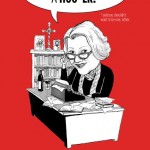Matt Emerson’s piece this week looks at the horrifying ordeal of the Petit family, and ponders what faith provides when pure evil breaks into our lives.
If you need a refresher, this is the story:
The terror began after two long-time criminals, Steven Hayes and Joshua Komisarjevsky, broke into the Petit home. After finding Dr. Petit, they battered him with a baseball bat, bound his hand and feet, and dumped him in the bottom of the home. They raped Mrs. Petit and 11 year-old Michaela.
When morning arrived, Hayes and Komisarjevsky drove Mrs. Petit to the bank and forced her to withdraw $15,000. After returning to the home, they strangled Mrs. Petit, tied Hayley and Michaela to their beds, poured gasoline on their bodies, and set the house on fire. Hayley and Michaela passed out from smoke inhalation before being touched by the inferno. Dr. Petit, crippled and unsteady from the baseball bat, dragged himself out of the basement shortly before his family’s home became a forest of flame.
Pondering this, Matt struggles with the sometimes glib responses we give to matters of light and darkness, good and evil:
I teach at an institution whose unofficial motto, invoked often, is that “God is always already at work in our lives.” I tell my students that God loves them, watches over them, has a plan for them. Everyone is made, I tell them, imago dei: in the image and likeness of God.
But when my thoughts drift to the Petits and to their holocaust, my certainties vanish. The darkness has not overcome it—right? Deus caritas est—right? Propositions that sustain my soul, and which I optimistically impart to my students, lose their obviousness. […] The lowest evil is like the highest love: it is mystery. We try in vain to solve it, and it is not our place. Our mission is something much different precisely because faith is not like mathematics. We are called, of course, to pray for the sufferer. But more fundamentally we are called, even in our poverty of experience and empathy, to be with the sufferer, in the words of Pope Benedict, to “take up his suffering in such a way that it becomes mine also.”
One of those pieces you want to read and then re-read, possibly with a drink by your side, or a dog.












